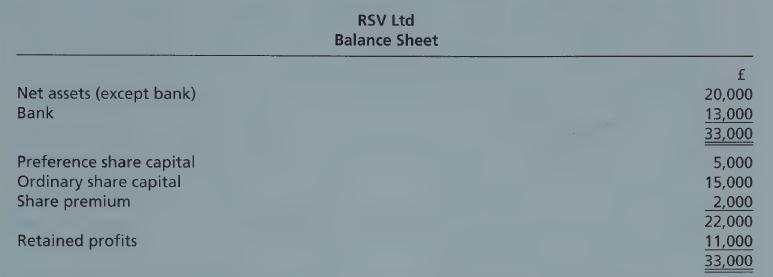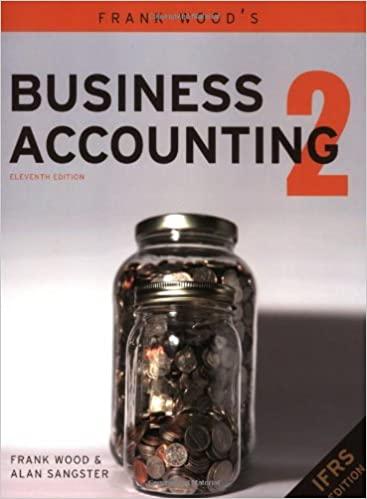Exercises (a) to (e) are based on the following balance sheet. Note also that each of exercises
Question:
Exercises (a) to (e) are based on the following balance sheet.

Note also that each of exercises (a) to (e) is independent of any other. The exercises are not cumulative.
Required:
(a) RSV Ltd redeems £5,000 preference shares at par, a new issue of £5,000 ordinary shares at par being made for the purpose. Show the balance sheet after completion of these transactions.
Workings are to be shown as journal entries.
(b) RSV Ltd redeems £5,000 preference shares at par, with no new issue of shares to provide funds.
Show the balance sheet after completing the transaction. Workings: show journal entries.
(c) RSV Ltd redeems £5,000 preference shares at par. To help finance this an issue of £1,500 ordinary shares at par is effected. Show the balance sheet after these transactions have been completed; also show the necessary journal entries.
(d) RSV Ltd redeems £5,000 preference shares at a premium of 25%. There is no new issue of shares for the purpose. In this question the share premium account is taken as being from the issue of ordinary shares some years ago. Show the balance sheet after these transactions have been completed, and the supporting journal entries.
(e) RSV Ltd redeems £5,000 preference shares at a premium of 40%. There is an issue of £7,000 ordinary shares at par for the purpose. The preference shares had originally been issued at a premium of 30%. Show the balance sheet after these transactions have been completed, and also the supporting journal entries.
Step by Step Answer:

Frank Woods Business Accounting Volume 2
ISBN: 9780273712138
11th Edition
Authors: Frank Wood, Alan Sangster





